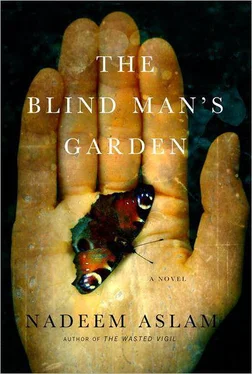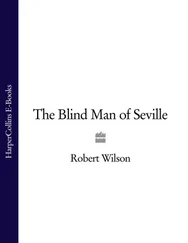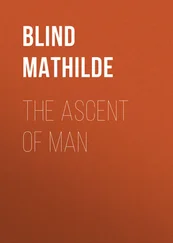‘My husband is dead.’
‘Just like your daughter’s.’ The man smiles and picks up the tea and sits drinking without further words.
The heat is intense despite last night’s storm. A tatiri bird is crying out in the branches outside. ‘It’s praying for rain,’ Tara had told her as a child and Naheed had wondered why it didn’t take a drink from the taps like the sparrows. ‘It neglected to give water to a holy man and he put a curse on it,’ Tara said. ‘Now it can never drink through its beak, only through a small opening at the top of its head. It prays for rain so a raindrop might fall through that hole and into its throat.’
‘What are you waiting for?’ the policeman asks.
‘I don’t want her to go to the police station,’ Tara says quietly.
‘Well, Tara, Naheed,’ the policeman says, ‘both of you must agree that it is far from decent behaviour for a girl to disappear from her home without telling anyone.’
‘She did leave a letter but we didn’t see it till later.’
‘Where is the letter?’ The man touches his earlobe with the cane again.
‘I can’t remember where I put it,’ Tara says, wondering if she should wake Rohan. But he needs his rest — Kyra visited earlier, to offer his sincere condolences for the death of Basie, and to say that the St Joseph’s siege was the work of Indian agents posing as Muslims, but he also reiterated his demand that the house must be vacated, as soon as possible.
‘You can’t remember where you put the letter?’ The man nods. ‘Tara, I am one of the moral guardians of this land. You cannot expect me not to have suspicions regarding your daughter’s character, given that you yourself were arrested and put in prison for wanton behaviour. Your husband too was dead when it happened. Just like hers.’
Tara, who has risen from her seat, having decided to call Rohan after all, sits down again.
‘Yes,’ the man says. ‘We looked into your background.’ He turns to Naheed. ‘What are you waiting for? I won’t tell you again. Go and get ready.’ He leans back in the chair and looks up at the ceiling, the tip of the cane touching the earlobe.
Tara removes her earrings and stands up and goes up to him and turns his left hand palm upwards and places the earrings on it. Closing his fingers around them.
He stays in that position for another few moments, then he stands up briskly with a smile. ‘Well, I am glad you have returned safely to your family, Naheed. I think I’ll go now. Everything seems to be in order here.’
Naheed steps away from the door to let him pass.
‘I’ll be back regularly to ask after your wellbeing,’ he tells her.
As he approaches Heer it is as though he is looking at his own memories.
*
He gets off the bus two towns earlier and enters a fabric store to buy enough material for a new shalwar kameez. He intends it to be white linen, but the woman ahead of him is buying twelve yards of it for a shroud, and an uneasy thought enters his mind that he will wear clothing made out of the same bolt. When his turn comes no more of the white cloth remains in any case. He points randomly to another colour. Taking the deep green material to the tailor on the other side of the street, he asks how long it will take to sew a new set of clothes. He buys a disposable Bic razor from the general store next door and has a shave and bathes in the mosque bathroom. He goes up into a secluded corner and opens a copy of the Koran and keeps his eyes on the page so no one will approach him, and after a while he lies down and dozes, with his face turned to the wall. Two hours later when he goes back to the tailor his shalwar kameez suit is ready. He puts it on and resumes his journey.
It’s ten o’clock at night when his rickshaw enters the central bazaar and then continues on towards the other end of Heer. Not wishing to be seen, he sits with his spine and head pressed against the back of the seat. At the Khan Mahal cinema he buys a ticket and goes into the main hall and falls asleep in the back row, while on the screen a woman sits at a piano singing a song, her eyes shyly returning to a man’s framed photograph placed on the piano lid.
When he climbs the boundary wall of Rohan’s house it is past one o’clock. Lifting himself from the top of the wall into the limbs of the peepal, going along various sturdy branches of other trees, he drops down into the garden and moves towards the veranda, his feet crushing a scent from the fallen guava leaves. He approaches the veranda where the entire far wall is covered top to bottom with nocturnal lizards, who flee at his approach.
Creak by creak, he opens the transom window above the main corridor. How many times had he done this in the past, coming home from a late film. He climbs down, as does his image in the glass of the far door, so that he is present at both ends of the passage for a few moments.
He enters Rohan’s room and stands beside the bed, looking at him. A lamp burns on the bedside table. Rohan opens his eyes, but it is as though he doesn’t see Mikal. The old man’s eyes are fixed on him without any reaction or acknowledgement. He stands rooted to the spot with things shining softly in the lamplight around him. Were it not for the evidence of the lizards, he would feel he was invisible. Rohan’s eyes watch him for a while and then Rohan blinks, on the verge of a word. But, no, he closes his eyes instead. Mikal looks at the Chinaman who supports the clock on the mantelpiece. Half past one.
He walks out into the hallway and glances towards the closed door to Jeo and Naheed’s room.
In an alcove is the toy truck he had given Jeo back in October, a lifetime ago.
His feet scatter the melon seeds left out to dry on a cloth sheet on the veranda as he makes his way out. He scales the boundary wall and goes deeper into the darkened neighbourhood, looking up for several minutes at the window to Naheed and Tara’s home. He is walking towards Basie’s house when he stops and frowns and turns back.
Entering Rohan’s room for the second time in less than an hour, he reaches out his hand towards the pillow and picks up the garment lying beside Rohan’s head. It’s the shirt Jeo was wearing when they left for Peshawar in October. It contains numerous gashes. One above the heart. Several in the stomach. Some in the arms.
He leaves the house with the bloodstained shirt in his hands, moving towards the cemetery, breaking into a run as he gets closer. There are thorns on fresh graves to stop dogs from unearthing the bodies. Some of them catch on his clothes but he keeps running between the mounds, towards where Rohan’s family has its plots.
*
When he enters the garden around midmorning the next day he sees Naheed immediately. The grass is strewn with the red blooms of the gulmohar trees, a wide display of all its tints, holding onto light long after they are dead. She is at the opposite end of the garden and he walks towards her, stopping a few feet away. This is the other side of the wound. After the war and violence and the madness of being inside pain, and the ugliness of intention and deed, her beauty seems an improbability, causing a sense of gratefulness in him. What it means to be alive long enough to love someone. To be granted yet another day above ground.
She is tending to a vine and she comes towards him and looks him directly in the eye — and then continues towards the shed.
She emerges with a length of cord and goes back to the flower-laden vine — a brief look over her shoulder at him.
She ties the vine in three places, squinting when the petals fall onto her face, and they fall onto her hair and even enter the kameez through the neckline and her sleeves which she proceeds to shake out. The fourth tendril she wishes to secure is too high and she fails to reach it despite several attempts. This time she doesn’t look at him as she goes back to the shed, no doubt for something to stand on, but her clothes almost brush his. He reaches up and ties the branch in place and walks away towards the pond, the hundred water lilies standing open on the water, the white of the herons too sharp to look at in the sun. He hears her walk back to the vine and then he hears her give a half-scream, the sound of someone just woken from a nightmare.
Читать дальше












